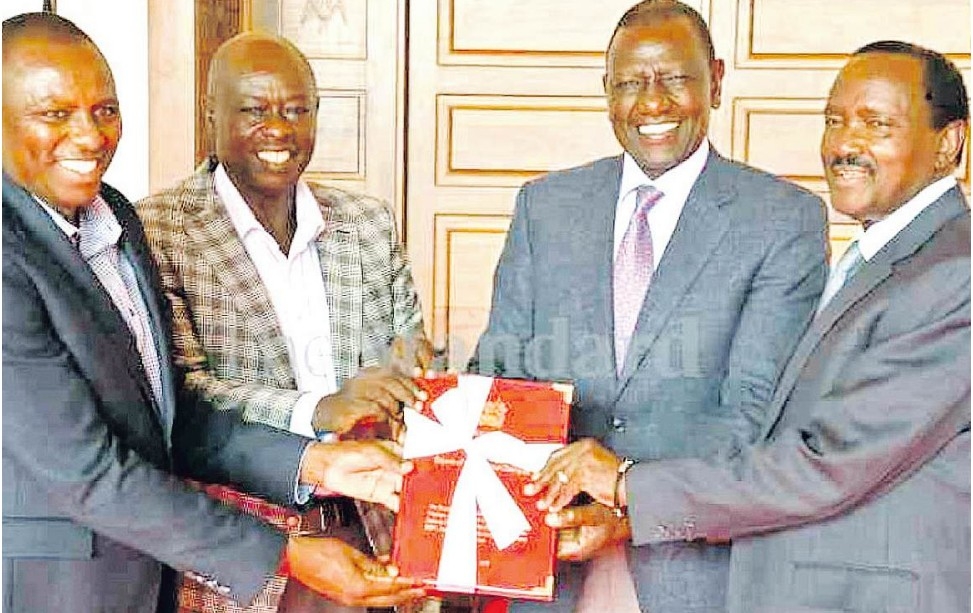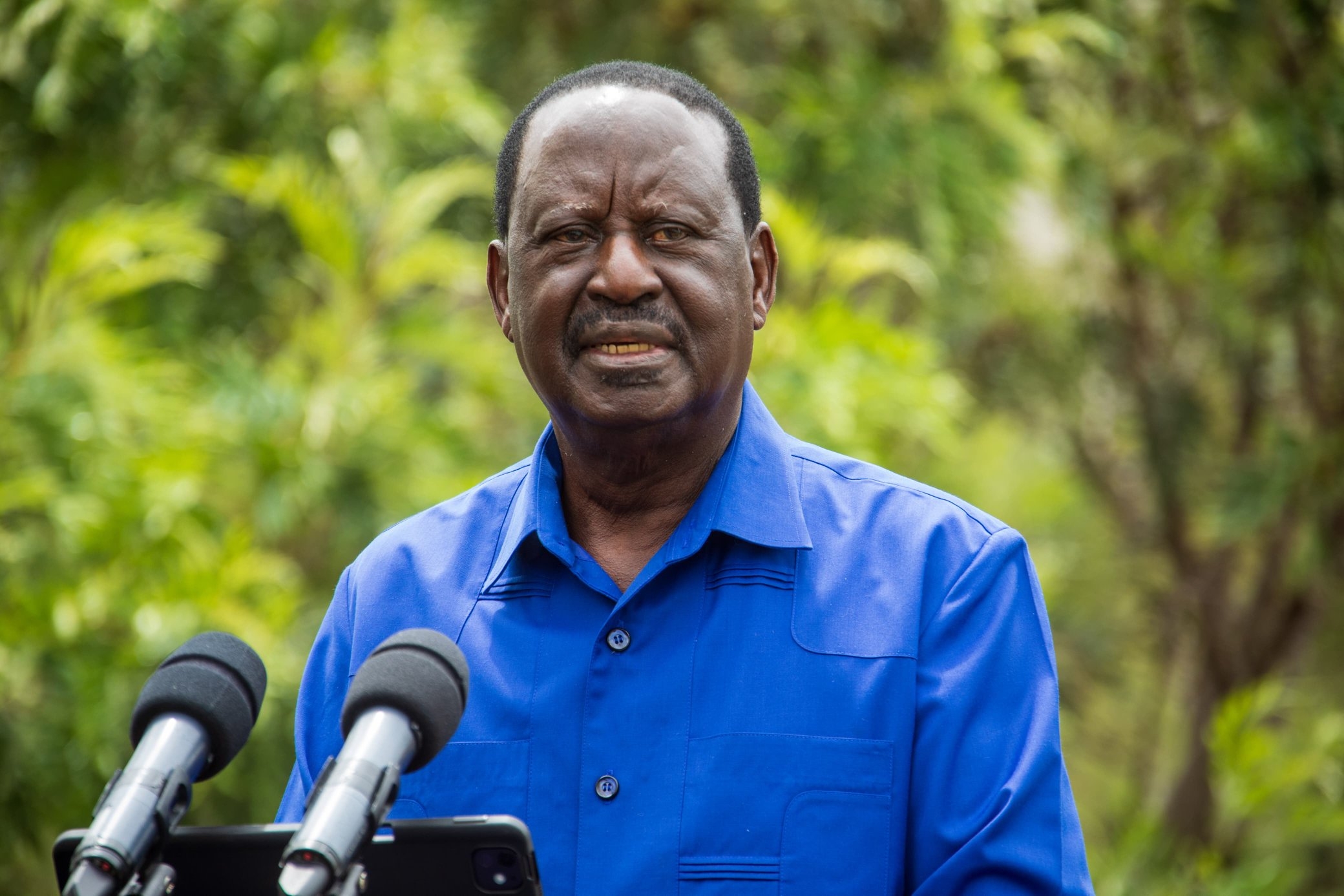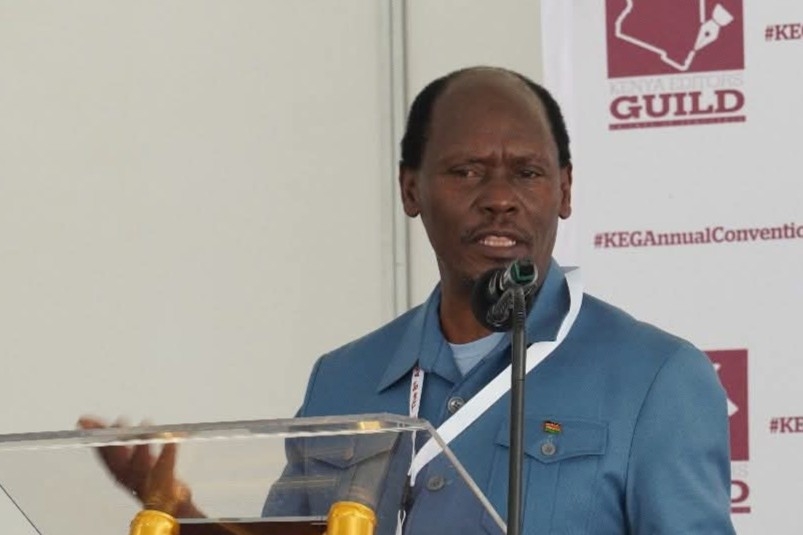The government paid insurance cover of Sh255 million to cushion 17,000 livestock keepers against drought.
Pastoralists from Wajir, Garissa, Samburu and Tana River counties received cover for the period from October 2022 to February 2023.
The nationwide Sh19.7 billion project will be launched on Thursday in Naibor, Laikipia county.
Livestock PS Jonathan Mueke said this financial protection against drought frees pastoralists from keeping too many animals to protect themselves against drought shocks.
He said the drought crisis needs a different approach.
“One that relies on pre-arranged financing instruments to put money into pastoralists’ pockets at the onset of the drought, rather than on assistance after drought has been declared and many animals have perished."
He spoke during a meeting with governors, senators and MPs about a livestock project at the Kenya Agricultural and Livestock Research Organisation (Kalro) headquarters.
The project is called the De-Risking, Inclusion and Value Enhancement of pastoral economies (DRIVE).
It was developed by the government through the State Department for Livestock Development (SDLD), in partnership with ZEP-RE (PTA Reinsurance Company), Kenya Development Corporation (KDC) and the World Bank Group.
Mueke said the DRIVE project aims to reduce the risk for pastoral systems at the primary level through an integrated package of financial services.
It will offer protection to pastoralists against severe drought by enhancing their inclusion in the broader economy.
The project financing agreement was signed in June 2022 and was effective in November 2022. Authority to implement the project was given by the National Treasury.
“The project expands access of pastoralists to a package of financial services, so that they may receive insurance payouts in their accounts in case of severe drought and use their savings in case of moderate shocks,” he said.
During the October, November and December 2022 season, more than 17,000 pastoralists registered for the insurance in Wajir, Garissa, Tana River and Samburu.
The PS said through the DRIVE project the government paid a subsidy of 80 per cent amounting to Sh192 million for premiums. This was to mitigate the drought effects.
Consequently, insurance companies are currently paying Sh173 million into the accounts of drought-affected pastoralists.
The insured pastoralists have qualified for initial savings incentives deposits of Sh6,000 each, with a total of Sh100 million for the insured pastoralists in the four counties.
Livestock insurance sales and savings is currently underway in 10 ASAL counties of Turkana, Marsabit, Mandera, Wajir, Garissa, Tana River, Isiolo, Samburu, Laikipia and Kajiado.
“This will be an annual insurance that will cover the long rains and short rains in 2023," Mueke said.
"Insurance sales are complete and over 43,000 pastoralists have registered with the government, paying an 80 per cent premium subsidy of more than Sh462 million. The remaining 20 per cent of over Sh115 million has been paid by individual pastoralists.”
DRIVE will be implemented in 21 ASAL counties of Turkana, Marsabit, Mandera, Wajir, Garissa, Tana River, Isiolo, Samburu, Meru, Tharaka Nithi, Baringo, West Pokot, Narok, Laikipia, Kajiado, Makueni, Kitui, Lamu, Taita Taveta, Kilifi and Kwale. The beneficiaries are pastoral groups that are sufficiently structured around productive activities.
Hope Murera, the managing director of ZEP-RE (PTA Reinsurance Company), said as part of the Horn of Africa Initiative, the DRIVE project will build resilience of pastoral communities in Kenya, Ethiopia, Somalia and Djibouti.
ZEP-RE is a regional organisation mandated to promote trade, development and integration within the Common Market for Eastern and Southern Africa (COMESA) through insurance and reinsurance business.
About 250,000 households are expected to benefit from the project representing 1.6 million pastoralists and their dependents across the four countries over five years.
In Kenya, more than 150,000 pastoralists are expected to benefit from the project across the ASALs, Murera said.
"The project is also expected to create markets around the livestock value chain, enhance regional cooperation and peace building, climate mitigation (improvement, fodder conservation, and increased productivity), and closing the gender gap in access to financial services,” she said.












![[PHOTOS] Ruto present as NIS boss Noordin Haji's son weds](/_next/image?url=https%3A%2F%2Fcdn.radioafrica.digital%2Fimage%2F2025%2F11%2Ff8833a6a-7b6b-4e15-b378-8624f16917f0.jpg&w=3840&q=100)




